Appliances
How Common Are Fan Fires?
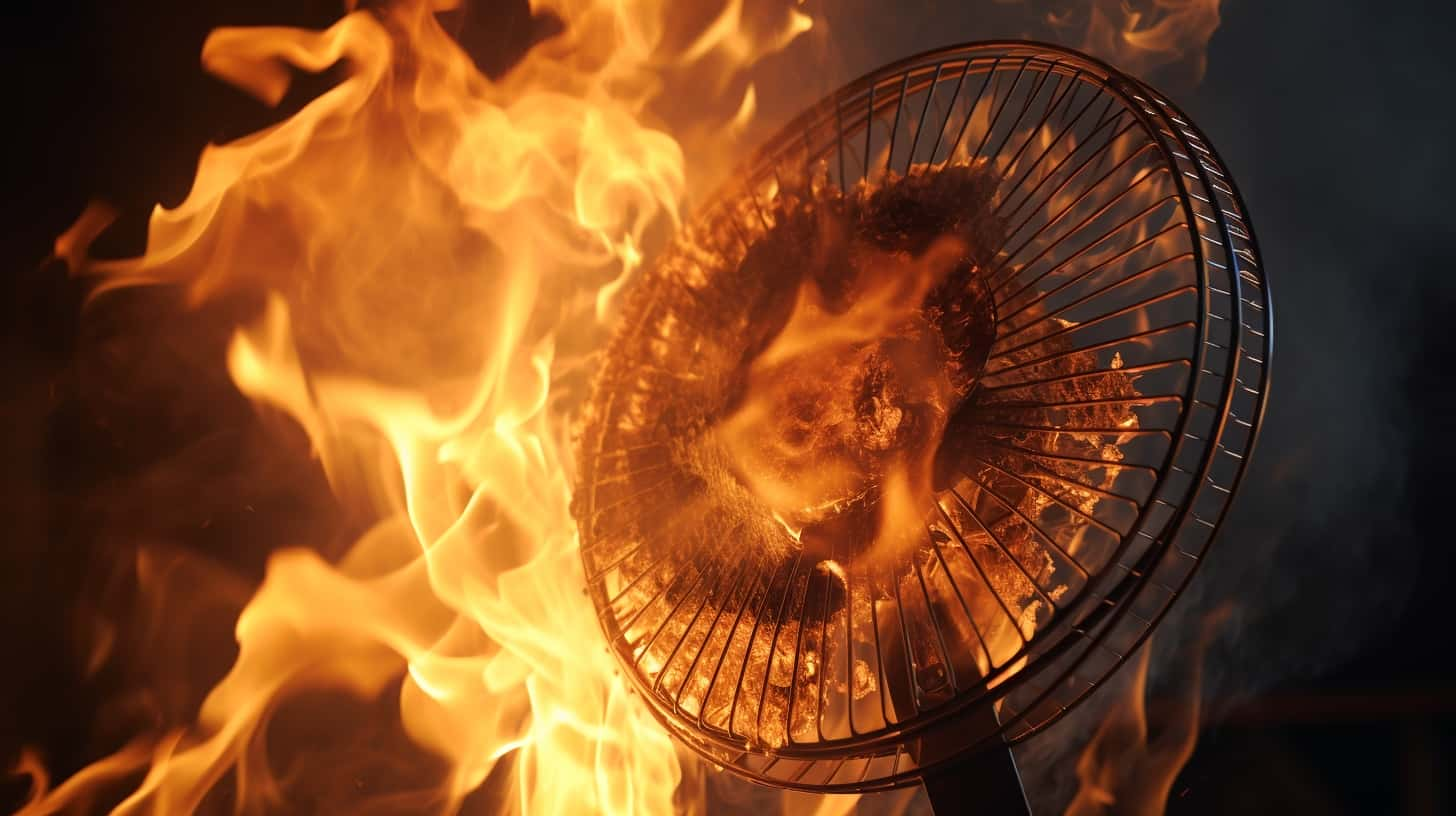
Within the scope of domestic dangers, the occurrence of fan-related fires is an issue that frequently goes unnoticed. Our exploration into fan fires is intended to offer a well-rounded and enlightening viewpoint. We strive not to provoke alarm, but instead aim to highlight the commonality and the possible dangers posed by such events.
Through an exploration of statistics, causes, and impact, we hope to equip readers with the knowledge they need to make informed decisions regarding fan usage in their homes. By delving into the factors that contribute to fan fires, we can better understand how to mitigate these risks and ensure the safety of ourselves and our loved ones.
Key Takeaways
- Fan fires are relatively rare, with a low incidence rate.
- On average, there are approximately 2,500 reported fan fires each year.
- Fan fires account for only a small percentage of total fire incidents.
- Causes of fan fires include poor maintenance, overheating, manufacturing defects, improper installation, and misuse of the fan.
Statistics on Fan Fires
Fan fires are a relatively rare occurrence, with statistics indicating a low incidence rate. However, it’s crucial to understand the causes of electrical fires and the impact that fan fires can have on property damage.
According to data collected from fire departments across the country, fan fires account for only a small percentage of total fire incidents. On average, there are approximately 2,500 reported fan fires each year. While this number may seem low, it’s important to note that even a single fan fire can cause significant damage to property and pose a risk to occupants.
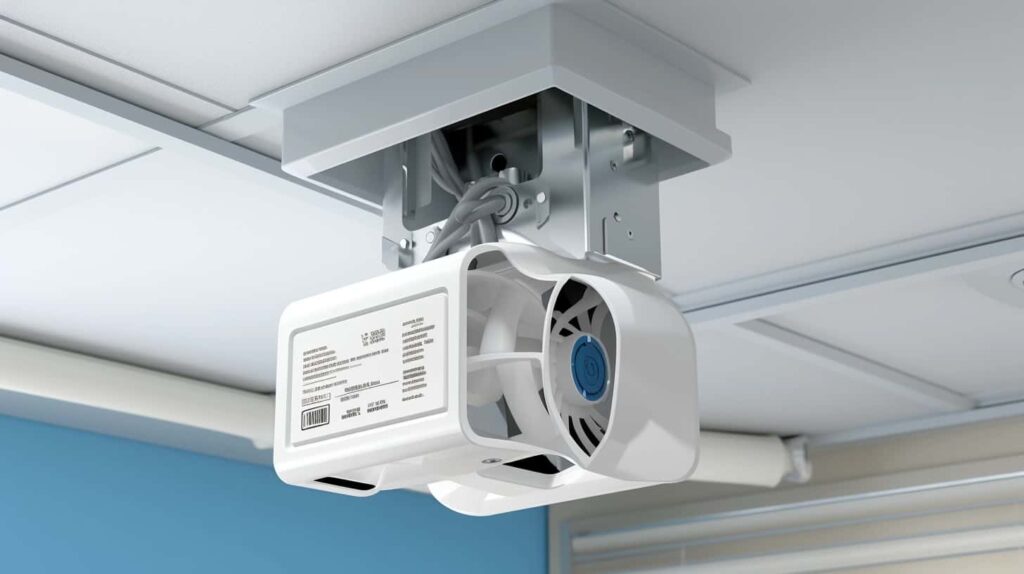
The primary cause of fan fires is electrical malfunction. Faulty wiring, loose connections, and overloaded circuits can all lead to a short circuit, resulting in sparks and flames. Additionally, accumulation of dust and debris around the fan motor can increase the risk of ignition.
The impact of fan fires on property damage can be substantial. Flames from a fan fire can quickly spread to surrounding materials, causing extensive damage to walls, ceilings, and furniture. Smoke and soot can also seep into other areas of the property, leading to additional cleanup and restoration costs.
Causes of Fan Fires
Electrical malfunctions are the primary cause of fan fires, often resulting from faulty wiring, loose connections, or overloaded circuits. To provide a comprehensive understanding of the causes of fan fires, here are some key factors to consider:
- Poor maintenance: Neglecting regular cleaning and maintenance of the fan can lead to the accumulation of dust and debris, which can ignite when exposed to heat or electrical sparks.
- Overheating: When a fan motor becomes excessively hot due to prolonged use or lack of proper ventilation, it can ignite nearby flammable materials, causing a fire.
- Manufacturing defects: In some cases, fan fires can be attributed to manufacturing defects, such as faulty components or inadequate insulation, which can lead to electrical malfunctions.
- Improper installation: Incorrect installation, such as using incorrect wiring or not following manufacturer instructions, can result in electrical issues that may lead to fan fires.
- Misuse: Using the fan inappropriately, such as placing it too close to flammable materials or obstructing the airflow, can increase the risk of fire.
To prevent fan fires, it’s important to follow these prevention tips:
- Regularly inspect and clean the fan, ensuring there’s no dust or debris buildup.
- Ensure proper ventilation around the fan to prevent overheating.
- Use the fan according to the manufacturer’s instructions and avoid overloading circuits.
- Have a professional electrician install the fan correctly, ensuring proper wiring and connections.
- Avoid placing the fan near flammable materials and keep it away from any obstructions.
Common Locations for Fan Fires
Given the various causes of fan fires, it’s essential to examine the common locations where these incidents often occur. Understanding these locations can help us take necessary safety precautions to prevent such incidents.
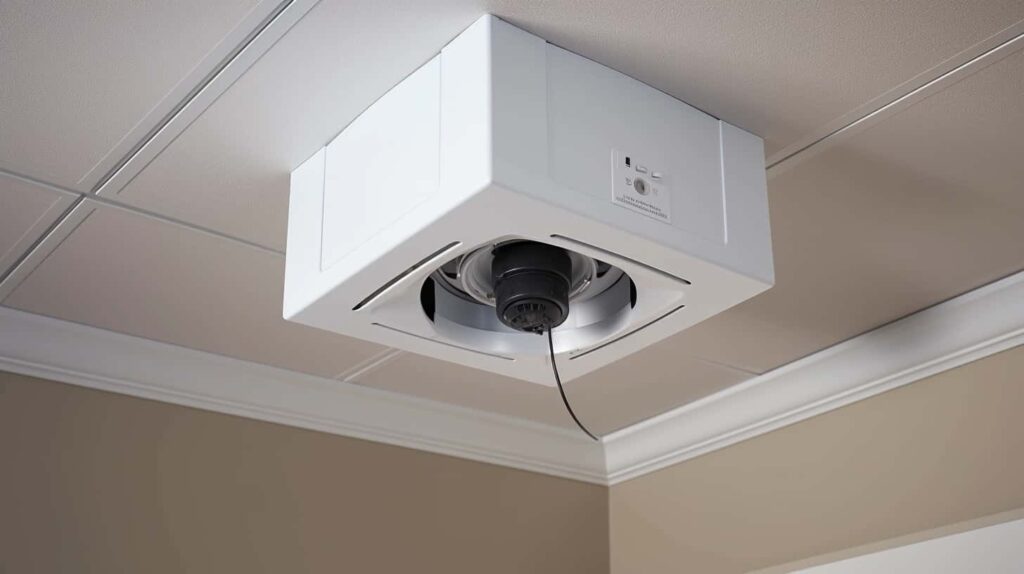
The most common location for fan fires is in residential buildings, particularly in bedrooms and living rooms. This is because these areas often have a high concentration of electrical appliances, including fans, which increase the risk of electrical failures and subsequent fires.
Fan fires can also occur in commercial buildings, especially in offices and retail spaces. These locations typically have a large number of fans operating simultaneously, which increases the likelihood of overheating and electrical malfunctions. Additionally, improper maintenance and lack of regular inspections contribute to the occurrence of fan fires in these settings.
It is crucial to note that fan fires can happen in any location where fans are used, including industrial settings, educational institutions, and healthcare facilities. Common causes for fan fires in these locations include poor ventilation, dust accumulation, and mechanical failures.
To prevent fan fires, it’s crucial to follow safety precautions such as regular maintenance, proper installation, and ensuring that fans are kept clean and free from dust and debris. Adequate ventilation and regular inspections can also help identify potential risks and address them promptly.
Impact of Faulty Wiring on Fan Fires
Faulty wiring significantly contributes to the occurrence of fan fires, posing a serious risk to the safety of individuals and property.
When it comes to fan fires, poor ventilation can have a significant impact. Insufficient airflow around a fan can cause the motor to overheat, leading to electrical malfunctions and potential fires. It’s crucial to ensure that fans are placed in well-ventilated areas, allowing for proper airflow and heat dissipation.
Additionally, using surge protectors is of utmost importance for fan safety. Surge protectors help prevent electrical surges and fluctuations, which can damage the wiring of a fan and increase the risk of fires. By using surge protectors, the electrical current going to the fan is regulated, reducing the chances of overheating and electrical malfunctions.
It’s essential to regularly inspect the wiring of fans and replace any frayed or damaged wires promptly. Furthermore, ensuring that the wiring is installed correctly and securely can help minimize the risk of fires caused by faulty wiring.
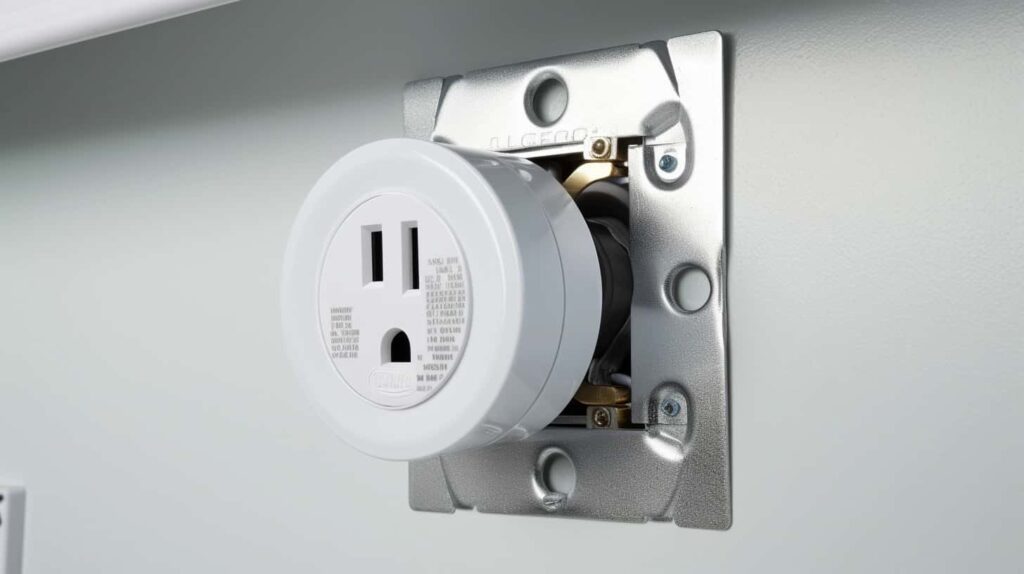
Importance of Regular Fan Maintenance
Regular maintenance of fans is crucial in preventing fire hazards. To ensure the safety of our homes or workplaces, it’s important to follow fire prevention tips such as keeping flammable materials away from fans and not overloading electrical outlets.
Additionally, cleaning the fan blades regularly and checking the electrical connections can help prevent potential issues that could lead to fan fires.
Fire Prevention Tips
To ensure the safety of your home and prevent the risk of fan fires, it’s crucial to prioritize regular maintenance of your fans. Here are some important fire prevention tips to keep in mind:
- Regular Cleaning: Dust and debris buildup on fan blades can increase the risk of overheating. Clean your fans regularly to remove any buildup.
- Proper Ventilation: Ensure that your fans have enough space around them for proper airflow. Avoid placing objects or furniture too close to the fans.
- Inspect Electrical Wiring: Regularly check the wiring of your fans to ensure there are no loose connections or frayed wires. This can help prevent electrical malfunctions that may lead to fires.
- Use Appropriate Bulbs: Use light bulbs with the correct wattage recommended by the fan manufacturer. Using bulbs with higher wattage can generate excessive heat and pose a fire hazard.
- Schedule Electrical Inspections: Regularly hire a professional electrician to inspect your home’s electrical system, including the fans. They can identify any potential issues and ensure everything is up to code.
Cleaning Fan Blades
Regularly cleaning the fan blades is essential for maintaining the safety and functionality of your fans. Dust and debris can accumulate on the blades over time, reducing their efficiency and potentially causing overheating.
To ensure proper airflow and prevent fan fires, it’s crucial to incorporate regular fan blade maintenance into your cleaning routine. Start by turning off the fan and unplugging it from the power source.
Gently wipe down the blades using a soft cloth or a brush to remove any dust or dirt. For more thorough cleaning, you can use a mild detergent mixed with water. Avoid using abrasive cleaners or excessive moisture, as these can damage the blades.
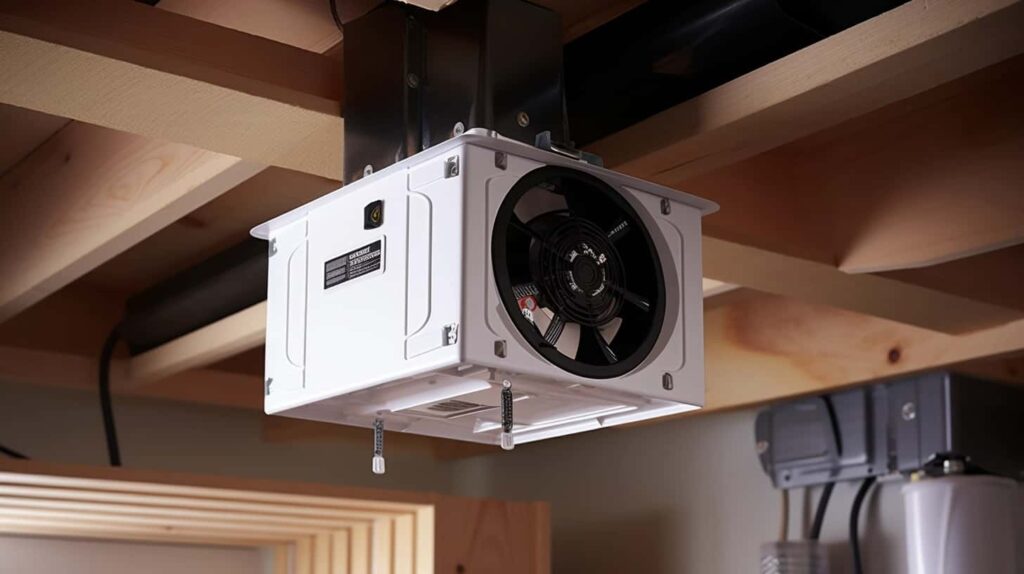
Checking Electrical Connections
Checking electrical connections is a crucial aspect of regular fan maintenance for ensuring optimal performance and reducing the risk of malfunctions. Properly functioning electrical connections are essential for the smooth operation of fan motors and the overall safety of the fan.
Here are five important steps to follow when checking electrical connections:
- Inspect all electrical connections for signs of damage or wear, such as loose wires or frayed insulation.
- Tighten any loose connections using a screwdriver or wrench, ensuring they’re secure and free from any movement.
- Use a multimeter to test the voltage and resistance of the connections to ensure they’re within the recommended range.
- Clean the connections using a soft brush or compressed air to remove any dirt or debris that may interfere with the electrical flow.
- Regularly monitor the connections for any signs of overheating, such as discoloration or a burning smell, and address any issues immediately.
Signs of Potential Fan Fire Hazards
We must remain vigilant for any warning signs indicating potential fan fire hazards. Recognizing these signs can help us prevent potential dangers and ensure the safety of our surroundings.
One common warning sign is the presence of burning smells or unusual odors coming from the fan. These odors may indicate overheating or electrical issues within the fan, which could lead to a fire.
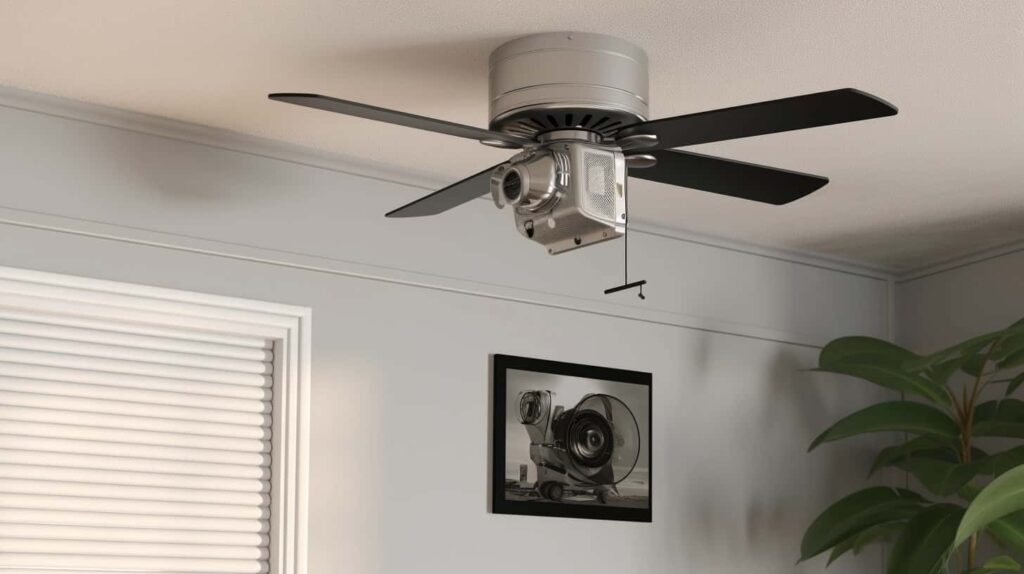
Another warning sign to watch out for is excessive vibration or shaking of the fan. This could be a sign of loose or damaged parts, which can increase the risk of a fire.
Additionally, if the fan starts making strange noises such as grinding, buzzing, or clicking sounds, it’s essential to investigate further as these noises may indicate mechanical or electrical problems that could potentially cause a fire.
Lastly, if you notice any sparks or smoke coming from the fan, it’s crucial to immediately switch off the power supply and contact a professional for inspection and repairs.
How to Prevent Fan Fires
To prevent fan fires, it’s important to understand the causes of such incidents. Factors like dust accumulation and electrical malfunctions can contribute to these fires. Additionally, being aware of warning signs of overheating can help to identify potential fire hazards. These signs may include strange noises or a burning smell.
Regular maintenance of fans is also crucial in preventing fan fires. This includes cleaning the blades to remove any dust or debris that could potentially ignite. It’s also important to check the electrical connections to ensure they are secure and not damaged. Taking these preventive measures can greatly reduce the risk of fan fires and help keep your space safe.
Causes of Fan Fires
Fan fires can be prevented by regularly cleaning and maintaining the fans to remove dust and debris buildup. Neglecting fan maintenance can lead to a number of causes for fan fires. It’s crucial to understand the importance of regular fan maintenance in order to prevent these fires.
Here are five key causes of fan fires:
- Overheating due to excessive dust accumulation
- Faulty wiring or electrical connections
- Mechanical failure caused by worn-out parts
- Improper installation or ventilation
- Ignition of flammable materials in close proximity to the fan
Regular cleaning and inspection of fans can help identify and address these potential causes, reducing the risk of fan fires. Additionally, ensuring proper installation and ventilation, as well as regular electrical maintenance, are essential preventive measures.
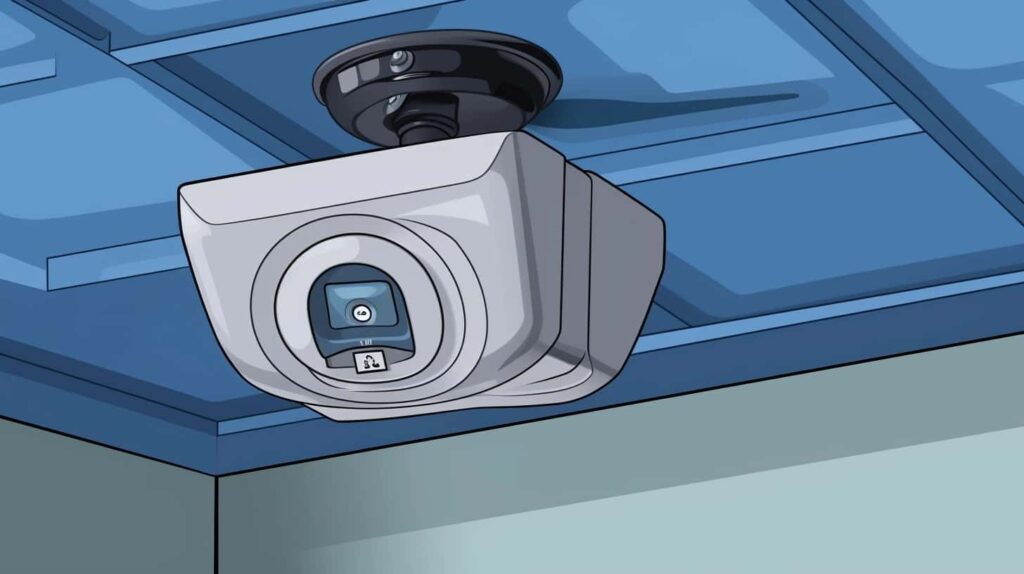
Warning Signs of Overheating
Regular cleaning and inspection of fans not only helps address potential causes of fan fires but also allows for the identification of warning signs of overheating, crucial in preventing these dangerous incidents. By recognizing these warning signs early on, appropriate preventive measures can be taken to ensure the safety and functionality of the fan. Here are some common warning signs of overheating to look out for:
Warning Signs Preventive Measures Excessive heat emanating from the fan Ensure proper ventilation and airflow around the fan. Clean any obstructions that may be blocking the fan’s cooling mechanism. Unusual noises or vibrations Check for loose or damaged parts. Lubricate the fan if necessary. Fan blades spinning slower than usual or not spinning at all Inspect the fan motor for any faults. Replace or repair as needed.
Being vigilant and proactive in identifying these warning signs can help prevent fan fires and ensure the longevity of the fan’s performance.
Maintenance Tips for Fans
By implementing proper maintenance techniques, fans can be effectively safeguarded against the risk of fires. Regular maintenance and cleaning techniques are essential to ensure the optimal performance and safety of fans. Here are five tips to help you prevent fan fires:
- Regularly inspect the fan for any signs of damage or wear and tear, such as frayed wires or loose connections.
- Clean the fan blades and vents regularly to remove dust and debris that can accumulate and potentially ignite.
- Lubricate the fan motor as per the manufacturer’s instructions to prevent overheating and reduce friction.
- Keep the fan away from flammable materials and ensure that there’s sufficient clearance around it for proper airflow.
- Schedule professional maintenance checks at least once a year to identify and address any potential issues before they escalate.
Importance of Using Certified Fans
Using certified fans is crucial for ensuring the safety and reliability of ventilation systems. Certified fan standards, such as those set by organizations like AMCA (Air Movement and Control Association International), ensure that fans meet specific performance, efficiency, and safety criteria. By using certified fans, businesses and individuals can enjoy several benefits.

Firstly, certified fans guarantee performance. They’re tested and rated for airflow, pressure, and power consumption, ensuring that they meet the specified requirements. This ensures that the ventilation system functions optimally, providing the necessary air circulation and maintaining desired indoor air quality.
Secondly, certified fans offer enhanced energy efficiency. These fans are designed to meet specific efficiency levels, reducing energy consumption and operating costs. By using certified fans, businesses can save on energy bills while minimizing their environmental impact.
Furthermore, certified fans provide improved safety. They undergo rigorous testing to ensure that they meet safety standards and regulations, reducing the risk of fire or other hazards. This is particularly important in commercial and industrial settings where ventilation systems operate continuously and under demanding conditions.
The Role of Overheating in Fan Fires
Overheating plays a critical role in fan fires, as excessive heat can ignite flammable materials and cause catastrophic damage.
To prevent overheating risks, it’s essential to ensure proper ventilation and airflow around fans, as well as regularly clean and maintain them to prevent dust buildup.
Additionally, using fans that are certified and meet safety standards can minimize the chances of overheating and potential fire hazards.

Heat as Fire Catalyst
The high temperatures generated by prolonged usage can play a critical role in igniting fan fires. When fans are operated for extended periods without breaks, the internal components can become overheated, leading to potential fire hazards. To prevent such incidents, it’s important to follow fire safety precautions and ensure proper ventilation.
Here are five key factors to consider:
- Regular maintenance: Clean the fan regularly to prevent dust buildup, which can hinder proper airflow and increase the risk of overheating.
- Placement: Position the fan in an open area, away from flammable materials, to allow for adequate air circulation and minimize heat buildup.
- Temperature monitoring: Use a thermometer to monitor the temperature of the fan during operation and immediately shut it down if it becomes excessively hot.
- Usage guidelines: Follow the manufacturer’s instructions, including recommended usage times and any restrictions on continuous operation.
- Fire extinguisher readiness: Keep a fire extinguisher nearby, ensuring it’s easily accessible in case of emergency.
Preventing Overheating Risks
To mitigate the risk of fan fires caused by overheating, it is crucial to implement preventive measures that address the potential hazards associated with prolonged usage and high temperatures.
Fan fire prevention is of utmost importance in ensuring fan safety. One effective way to prevent overheating is by regularly cleaning the fan and its components to remove dust and debris that can obstruct airflow. Additionally, providing proper ventilation and ensuring that the fan is not placed near flammable materials can help reduce the risk of overheating.
It is also important to use fans that have built-in safety features such as automatic shut-off mechanisms when the temperature exceeds a certain limit. By taking these preventive measures, we can significantly reduce the risk of fan fires and promote fan safety.
Preventive Measures Importance Regular cleaning Reduces the risk of debris accumulation and improves airflow Proper ventilation Helps dissipate heat and prevents overheating Safety features Automatically shuts off the fan when the temperature exceeds a certain limit
How to Safely Use Fans in Your Home
When using fans in your home, it’s important to follow proper safety guidelines to ensure the well-being of both yourself and your household. Here are some safety precautions and proper fan placement techniques to consider:
- Keep a safe distance: Ensure that fans are placed at least three feet away from any combustible materials, such as curtains, furniture, or bedding. This will help prevent the risk of fire.
- Avoid overloading circuits: Don’t plug multiple fans into the same electrical outlet or use extension cords. This can lead to overheating and electrical fires. Use separate outlets for each fan.
- Regularly clean and maintain fans: Dust and debris can accumulate on the blades and motor, increasing the risk of overheating. Clean the fan blades and motor regularly to prevent any potential fire hazards.
- Check for loose parts or damaged cords: Before using a fan, inspect it for any loose parts or damaged cords. If any issues are found, repair or replace the fan immediately.
- Turn off fans when not in use: It’s important to turn off fans when leaving the room or going to sleep. This not only saves energy but also reduces the risk of accidents.
What to Do in Case of a Fan Fire Emergency
In case of a fan fire emergency, it’s crucial to immediately disconnect the power source and evacuate the area. Fan fires can occur due to various reasons, such as electrical malfunctions, overheating, or mechanical failures. To prevent fan fires, it’s important to regularly inspect and maintain your fans, ensuring that they’re free from dust and debris that can accumulate and pose a fire hazard. Additionally, use fans that have been certified by recognized testing organizations, as these meet safety standards and are less likely to cause fires.
If you find yourself in a fan fire emergency situation, follow these steps to ensure your safety and minimize damage.

First, disconnect the power source by unplugging the fan or cutting off the electricity supply. This will prevent the fire from spreading and reduce the risk of electrical shock.
Next, evacuate the area immediately and call emergency services to report the fire. Don’t attempt to extinguish the fire yourself, as it can be dangerous and worsen the situation.
Frequently Asked Questions
Are All Fan Fires Caused by Faulty Wiring?
Not all fan fires are caused by faulty wiring. While faulty wiring can be a common cause of fan fires, there are other factors that can contribute to these incidents.
Common fan fire risks include overheating due to blocked ventilation, misuse of the fan, or mechanical failure.
It’s important to regularly inspect and maintain fans to prevent potential fire hazards.
How Many Fan Fires Occur Each Year?
Each year, fan fires pose a significant risk to households. Statistics on fan fire incidents reveal alarming numbers, shedding light on the causes of these fires.
Understanding the frequency of these incidents can help raise awareness and promote preventive measures. By addressing faulty wiring, proper maintenance, and regular inspections, we can mitigate the occurrence of fan fires and ensure the safety of our homes.
Stay informed, stay safe.
Can Fan Fires Be Prevented by Regular Fan Maintenance Alone?
Regular fan maintenance alone can’t completely prevent fan fires. While it’s important to keep fans clean and free from dust buildup, other fire prevention techniques must also be implemented.
Proper ventilation and airflow are crucial in reducing the risk of fan fires.
Regularly inspecting electrical connections and ensuring that fans aren’t overloaded are additional steps that should be taken.
Is It Safe to Leave a Fan Running Overnight?
Leaving a fan running overnight may seem convenient, but it’s important to consider the energy efficiency and impact on electricity bills.
Fans are generally designed to be energy-efficient, consuming less electricity compared to other appliances. However, running a fan overnight can still contribute to increased electricity usage and higher bills.
To maximize energy efficiency, it’s advisable to use fans only when needed and turn them off when not in use.
Are There Any Warning Signs Before a Fan Fire Occurs?
Before a fan fire occurs, there are usually warning signs that indicate an impending danger. It’s crucial to be aware of these signs to ensure safety when using a fan overnight. These warning signs may include overheating, unusual noises, or a burning smell emanating from the fan.
It’s important to promptly address these signs by turning off the fan and seeking professional assistance if necessary. Following safety precautions and regularly maintaining your fan can greatly reduce the risk of a fan fire.
Are Outdoor Ceiling Fans More Prone to Fires?
When it comes to installing ceiling fan outdoor, safety should be a top priority. Outdoor ceiling fans are not necessarily more prone to fires, but factors like improper installation or exposure to extreme weather can increase the risk. It’s important to follow manufacturer’s guidelines and have professional installation to ensure safety.
Conclusion
In conclusion, fan fires are a serious and potentially dangerous occurrence. It’s crucial to prioritize regular fan maintenance and use certified fans to minimize the risk of fire.
Faulty wiring and overheating are common causes of fan fires, which can happen in various locations.
Remember to exercise caution and follow safety guidelines when using fans in your home.
Don’t let a fan fire blow out your peace of mind.
- About the Author
- Latest Posts
Introducing Ron, the home decor aficionado at ByRetreat, whose passion for creating beautiful and inviting spaces is at the heart of his work. With his deep knowledge of home decor and his innate sense of style, Ron brings a wealth of expertise and a keen eye for detail to the ByRetreat team.
Ron’s love for home decor goes beyond aesthetics; he understands that our surroundings play a significant role in our overall well-being and productivity. With this in mind, Ron is dedicated to transforming remote workspaces into havens of comfort, functionality, and beauty.
Appliances
3 Essential Tips for RV-Friendly Portable Washers

- Pros and cons of using eco friendly laundry detergent in a portable washer.
- Tips for preventing detergent residue buildup in a portable washer
Are you exhausted from constantly looking for laundromats during your RV trips? We get it. That’s why we’re here to provide three key tips for RV-friendly portable washing machines.
While you might be thinking, ‘Do I really need a portable washer?’ trust us, having one on your RV can be a game-changer. In this guide, we’ll show you how to choose the right size washer that fits your RV’s limited space, understand the power and water requirements to ensure smooth operation, and provide you with maintenance and cleaning tips to keep your washer running efficiently.
So, let’s dive in and master the art of laundry on the road!
Key Takeaways
- Consider the laundry capacity needed for your RV.
- Look for compact and lightweight options with space-saving features.
- Choose a portable washer with high energy efficiency and water conservation features.
- Regularly maintain and clean your portable washer using recommended cleaning products.
Choosing the Right Size
One of the first considerations when selecting a portable washer for our RV is determining the appropriate size. Portable washer features and space-saving options play a crucial role in making this decision. When it comes to size, it’s important to find a washer that fits well within the limited space of an RV, while still providing enough capacity to meet our laundry needs.
To begin with, portable washers come in a range of sizes, typically measured in pounds of laundry capacity. It’s essential to consider the amount of laundry we anticipate doing on a regular basis. While a smaller capacity may be suitable for individuals or couples, larger families might require a washer with a higher capacity to accommodate their laundry demands.
Additionally, it’s important to consider the physical dimensions of the washer. RVs have limited space, so opting for a compact and lightweight washer can help maximize the available room. Some portable washers are designed with space-saving features such as folding handles, detachable components, or even stackable options that can fit neatly into tight spaces.
Understanding Power and Water Requirements
When considering the power and water requirements for our RV-friendly portable washer, we need to understand the necessary resources for optimal performance.
Energy efficiency is an important factor to consider when choosing a portable washer for your RV. Look for models that have a high Energy Star rating, as this indicates that they consume less energy and can help you save on your electricity bills.

Additionally, portable washer features such as load sensing technology and adjustable water levels can help you conserve water. These features ensure that the washer only uses the amount of water necessary to clean your laundry, which is particularly crucial when you have limited water supply in your RV.
It’s also important to check the power requirements of the portable washer. Make sure that the washer is compatible with the power source available in your RV, whether it’s a standard 120-volt outlet or a 12-volt DC power source.
Understanding the power and water requirements of your RV-friendly portable washer won’t only help you achieve optimal performance but also contribute to energy and water conservation.
Maintenance and Cleaning Tips
Let’s talk about how to properly maintain and clean your RV-friendly portable washer. Taking care of your portable washer is essential to ensure its longevity and optimal performance. Regular maintenance and cleaning will help prevent any potential issues and keep your machine running smoothly. Here are some common troubleshooting tips and recommended cleaning products to keep in mind: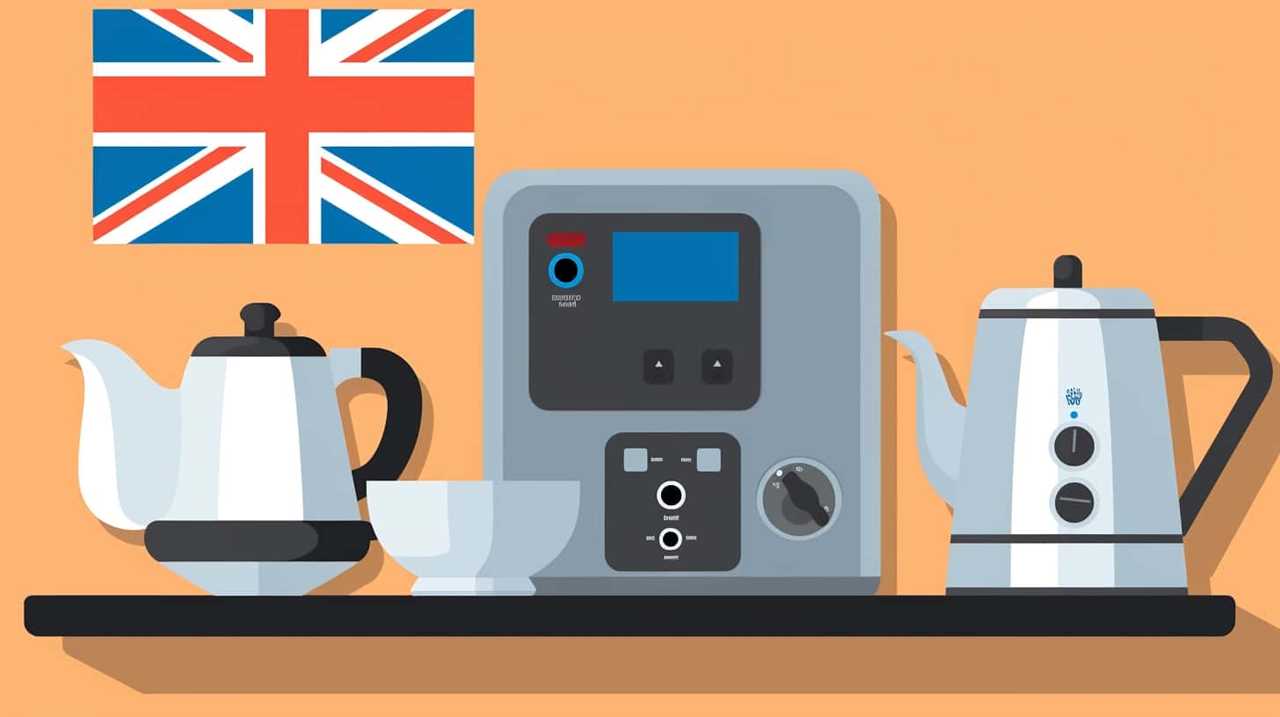
| Common Troubleshooting | Recommended Cleaning Products |
|---|---|
| Leaking water | Vinegar and water mixture |
| Excessive noise | Mild detergent |
| Drum not spinning | Baking soda |
| Error codes | Citric acid |
If you encounter a problem such as leaking water, try using a mixture of vinegar and water to clean the machine’s seals and hoses. For excessive noise, use a mild detergent to clean the drum and remove any debris that may be causing the noise. If the drum is not spinning, try using baking soda to remove any buildup that may be hindering its movement. Lastly, if you receive error codes, using citric acid in the detergent compartment can help clean the sensors and resolve the issue.
Remember to always refer to your portable washer’s manual for specific maintenance instructions and troubleshooting tips. By following these guidelines and using the recommended cleaning products, you can keep your RV-friendly portable washer in great condition and enjoy clean laundry on your travels.
Frequently Asked Questions
How Long Does It Typically Take to Wash a Full Load of Laundry Using a Portable Washer?
Typically, it takes around 30 to 45 minutes to wash a full load of laundry using a portable washer.
However, it’s important to consider the capacity limitations of these machines. Most portable washers have a smaller capacity compared to traditional washers, so it may take longer if you have a larger load.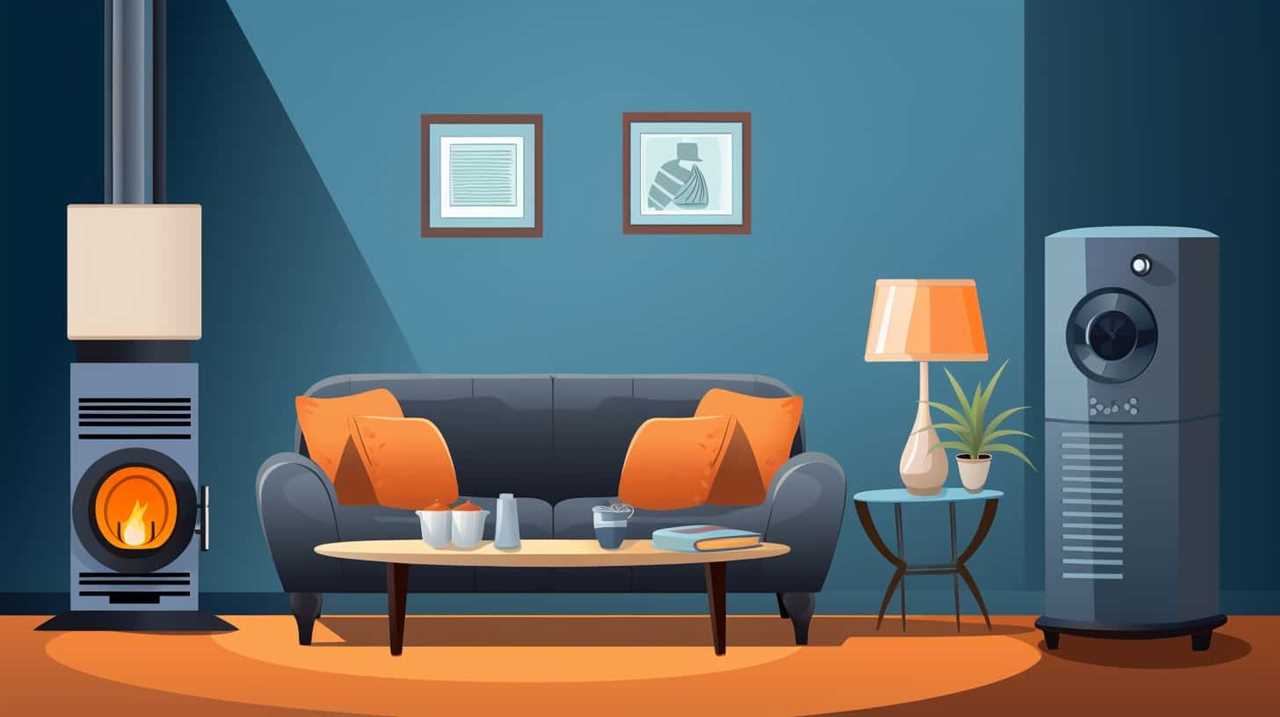
It’s always a good idea to follow the manufacturer’s instructions and not overload the machine to ensure efficient and effective washing.
Can I Use Regular Laundry Detergent in a Portable Washer, or Do I Need to Use a Specific Type?
Yes, you can use regular laundry detergent in a portable washer. However, there are some pros and cons to consider.
Using eco-friendly laundry detergent in a portable washer is a great option for those who want to reduce their environmental footprint. It can be gentler on your clothes and safer for the environment.
However, some eco-friendly detergents may not be as effective at removing tough stains. To prevent detergent residue buildup, make sure to use the recommended amount of detergent and run an extra rinse cycle if needed.
Is It Safe to Leave a Portable Washer Unattended While It’s Running?
Safety precautions should be taken when using a portable washer unattended. There are potential risks involved, such as water leakage or electrical malfunctions. It’s important to follow the manufacturer’s instructions and guidelines for safe operation.
Some tips to minimize risks include ensuring a stable surface, avoiding overloading the machine, and regularly checking for any signs of damage.
It’s always best to err on the side of caution when it comes to leaving a portable washer running without supervision.
Can I Wash Delicate Fabrics, Such as Silk or Lace, in a Portable Washer?
When it comes to washing delicate fabrics like silk or lace in a portable washer, there are a few things to keep in mind.
Firstly, check the manufacturer’s instructions to ensure that your specific model is suitable for these types of fabrics.
Secondly, use a gentle cycle and cold water to minimize any potential damage.
Lastly, consider placing delicate items in a mesh laundry bag for added protection.
With these precautions, you can safely wash your delicate fabrics in an RV-friendly portable washer.

How Noisy Are Portable Washers When in Operation?
When it comes to the noise level of portable washers, it’s important to consider their energy efficiency as well. These machines are designed to be compact and efficient, so they tend to operate quietly. While they do make some noise during operation, it’s typically minimal and shouldn’t disturb your RV neighbors or disrupt your peaceful campsite.
Plus, their energy efficiency means you can enjoy clean clothes without draining your RV’s power supply.
Conclusion
In conclusion, choosing the right size portable washer for your RV, understanding power and water requirements, and following maintenance and cleaning tips are essential for a smooth laundry experience on the road.
By coincidence, we stumbled upon a fellow traveler at a campsite who’d just purchased a portable washer based on our article. They were thrilled with the convenience and efficiency it provided.
So, take these tips into consideration and enjoy clean clothes wherever your adventures take you!
- About the Author
- Latest Posts
Introducing Charles, the Editor in Chief at ByRetreat, whose passion for interior design and editorial excellence elevates every remote workspace to new heights. With his keen eye for detail, impeccable taste, and expertise in design, Charles brings a wealth of knowledge and creativity to the ByRetreat team.
As the Editor in Chief of a renowned lifestyle blog, Charles has honed his skills in curating captivating content and staying up-to-date with the latest trends in interior design. His deep understanding of aesthetics and the power of storytelling through design enables him to create remote workspaces that are not only visually stunning but also rich in personality and meaning.
Appliances
4 Smart Tips for Extended Commercial Appliance Warranties

Did you realize that nearly 80% of commercial appliance malfunctions happen after the manufacturer’s warranty runs out? As business operators, we grasp the significance of safeguarding our assets and reducing unforeseen costs.
That’s why we have compiled four smart tips for extended commercial appliance warranties that will help you make informed decisions and ensure the longevity of your appliances.
In this guide, we will discuss choosing the right warranty provider, understanding coverage and exclusions, evaluating the cost and value, and maximizing the benefits of extended warranties.
By following these tips, you can have peace of mind knowing that your appliances are protected and your business operations can continue smoothly.
Let’s dive in and master the art of extended warranties!
Key Takeaways
- Choose a warranty provider with a good reputation and track record.
- Understand the coverage details and limitations of the warranty.
- Evaluate the cost and value of extended warranties.
- Maximize the benefits by understanding the claim process and maintaining your appliances.
Choosing the Right Warranty Provider
When selecting a warranty provider for extended commercial appliance warranties, we should consider their reputation and track record in the industry. Identifying reputable providers is crucial to ensure that we’re dealing with a company that has a history of delivering on their promises and providing excellent service to their customers. A reputable provider will have a strong presence in the market and positive reviews from satisfied clients. They’ll also have a proven track record of handling warranty claims efficiently and resolving issues promptly.
In addition to reputation, it’s important to compare warranty terms offered by different providers. We should carefully review the terms and conditions of each warranty to ensure that they meet our specific needs and requirements. This includes understanding the coverage provided, such as if it includes parts and labor costs, and the duration of the warranty. It’s also important to consider any limitations or exclusions that may apply.
Understanding Coverage and Exclusions
To fully understand the extent of coverage and any exclusions, we should carefully review the warranty terms and conditions for our extended commercial appliance warranties. Many people have common misconceptions about what’s covered under these warranties, which is why it’s so important to read the fine print. Here are some key points to consider:
- Scope of coverage: It’s crucial to understand what types of repairs or replacements are included in the warranty. This may vary depending on the provider and the specific appliance being covered. Some warranties may only cover certain parts or components, while others may offer more comprehensive coverage.
- Exclusions: Even though warranties provide coverage, there are often exclusions stated in the terms and conditions. These exclusions may include damage caused by misuse, neglect, or unauthorized repairs. It’s important to be aware of these exclusions to avoid any surprises when filing a claim.
- Duration of coverage: Extended commercial appliance warranties can vary in terms of their duration. Some warranties may provide coverage for a fixed period of time, while others may offer coverage until a certain number of repairs or replacements have been made. Understanding the duration of coverage can help us plan for future maintenance and repairs.
- Claim process: Familiarizing ourselves with the claim process is essential. This includes knowing who to contact, what documentation is required, and any specific procedures that need to be followed to ensure a smooth and efficient claim experience.
Evaluating the Cost and Value
To determine the cost-effectiveness of extended commercial appliance warranties, we need to assess their overall value. When weighing options and considering budget considerations, it is essential to evaluate the benefits and drawbacks of purchasing extended warranties for your appliances. To help you make an informed decision, we have created a table that outlines the key factors to consider:
| Factors to Consider | Benefits | Drawbacks |
|---|---|---|
| Coverage | Extended protection beyond the manufacturer’s warranty period | Additional cost |
| Repair Costs | Potential savings on repair expenses | Warranty cost may outweigh repair costs |
| Peace of Mind | Assurance that your appliances are protected | Limited likelihood of appliance failure |
By considering these factors, you can determine whether the cost of an extended warranty is justified by its value. It is important to note that budget considerations should not be the sole determining factor. While extended warranties may come at an additional cost, they can provide peace of mind and potential savings on repair expenses.
In the next section, we will explore strategies for maximizing the benefits of extended warranties, ensuring that you get the most value out of your investment.
Maximizing the Benefits of Extended Warranties
To maximize the benefits of extended warranties, we can employ strategies that optimize our investment. By understanding the claim process and exploring renewal options, we can ensure that our commercial appliance warranties provide us with the maximum value and protection.
Here are some smart tips for maximizing the benefits of extended warranties:
- Thoroughly understand the claim process: Familiarize yourself with the steps involved in filing a claim. Know the required documentation, such as proof of purchase and warranty information. By being prepared, you can expedite the claim process and minimize downtime.
- Regularly maintain your appliances: Proper maintenance is crucial for the longevity and performance of your commercial appliances. Follow the manufacturer’s guidelines for cleaning, servicing, and inspections. Regular maintenance not only extends the lifespan of your appliances but also helps prevent potential issues that may require warranty claims.
- Research renewal options: When your extended warranty is about to expire, explore renewal options offered by the warranty provider. Some providers offer extended renewal plans with additional coverage, giving you continued peace of mind and protection for your investment.
- Keep warranty documents organized: Maintain a dedicated folder or digital file for all your warranty documents. This ensures easy access to necessary information when filing a claim or renewing your warranty.
Frequently Asked Questions
How Can I Extend the Warranty on My Commercial Appliance if It’s Already Expired?
To extend the warranty on your commercial appliance after it has expired, there are several renewal options available.
You can contact the manufacturer or a third-party warranty provider to inquire about their extended warranty programs. They may offer coverage plans specifically designed for appliances with expired warranty coverage.
It’s important to carefully review the terms and conditions, as well as the cost, of these extended warranty options to ensure they meet your needs and budget.
Are There Any Specific Requirements or Limitations for Obtaining an Extended Warranty for Commercial Appliances?
When obtaining an extended warranty for commercial appliances, it’s important to be aware of the common exclusions in extended warranty coverage. These may include wear and tear, cosmetic damage, and misuse or negligence.
To choose the right extended warranty, consider factors such as the length of coverage, cost, and reputation of the provider.
It’s also crucial to thoroughly read and understand the terms and conditions of the warranty to avoid any surprises down the line.
Can I Transfer My Extended Warranty to a New Owner if I Sell My Commercial Appliance?
Yes, you can transfer your extended warranty to a new owner if you sell your commercial appliance. This ensures that the warranty coverage for used appliances continues with the new owner.
It’s important to check the specific requirements and limitations of your extended warranty to ensure a smooth transfer process. By transferring the warranty, you provide peace of mind to the new owner and protect them against any unexpected repair or replacement costs.
What Happens if My Commercial Appliance Breaks Down Multiple Times During the Extended Warranty Period?
If your commercial appliance breaks down multiple times during the extended warranty period, you may be eligible for claim reimbursement. The repair or replacement timeline will depend on the terms and conditions of your warranty.
It’s important to thoroughly review the warranty agreement to understand the process and any limitations. Our team is here to help ensure that your claims are handled efficiently and that you receive the necessary repairs or replacements in a timely manner.
Is There a Limit to the Number of Claims I Can Make Under an Extended Warranty for My Commercial Appliance?
There are limitations to the number of claims we can make under an extended warranty for our commercial appliance.
However, it’s important to note that extended warranties offer numerous benefits for commercial appliances. They provide peace of mind by covering repairs and replacements, reducing downtime and maintenance costs.
Conclusion
In conclusion, when it comes to extended commercial appliance warranties, there are several crucial considerations to keep in mind.
Firstly, choosing the right provider is essential. It’s important to research and compare different warranty providers to ensure they have a good reputation and offer comprehensive coverage.
Understanding coverage and exclusions is also crucial. Businesses should carefully review the terms and conditions of the warranty to know exactly what is covered and what is not. This will help avoid any surprises or disappointments down the line.

Evaluating cost and value is another important factor. Businesses should consider the cost of the warranty in relation to the potential repair or replacement costs of the appliances. They should also assess the value of the warranty by considering additional benefits such as extended service hours or priority service.
Lastly, maximizing benefits is key. Businesses should take advantage of all the benefits offered by the warranty, such as regular maintenance or discounted repairs. This will help ensure the appliances are well-maintained and any issues are addressed promptly.
By following these smart tips, businesses can make informed decisions that protect their investments. Just like a well-oiled machine, a well-chosen warranty can provide peace of mind and keep the business running smoothly. So don’t leave your appliances vulnerable, take action and secure their longevity today.
- About the Author
- Latest Posts
Introducing Charles, the Editor in Chief at ByRetreat, whose passion for interior design and editorial excellence elevates every remote workspace to new heights. With his keen eye for detail, impeccable taste, and expertise in design, Charles brings a wealth of knowledge and creativity to the ByRetreat team.
As the Editor in Chief of a renowned lifestyle blog, Charles has honed his skills in curating captivating content and staying up-to-date with the latest trends in interior design. His deep understanding of aesthetics and the power of storytelling through design enables him to create remote workspaces that are not only visually stunning but also rich in personality and meaning.
Appliances
3 Essential DIY HVAC Maintenance Tips Unveiled

Ah, the pleasures of tending to our HVAC systems! We understand the excitement of dedicating our valuable time to the upkeep and repair of these marvelous devices. But do not worry, dear reader, as we have revealed the tips to becoming skilled at DIY HVAC maintenance.
In this guide, we will unveil three essential tips that will ensure your HVAC system remains in perfect harmony. Get ready to dive into the world of air filters, thermostat settings, and outdoor condenser units. We will show you how to clean, check, and clear with ease, all while achieving that coveted mastery over your HVAC system.
So, let’s roll up our sleeves and get down to business, shall we?
Key Takeaways
- Regular maintenance, including cleaning air filters and checking thermostat settings, is essential for optimal HVAC system performance.
- Cleaning or replacing air filters prevents clogging and maintains a healthy indoor environment.
- Checking and maintaining thermostat settings ensures accurate temperature control and programming.
- Clearing debris from the outdoor condenser unit improves its performance and prevents airflow restriction.
Cleaning Air Filters Regularly
We recommend cleaning air filters regularly to ensure proper airflow and maintain optimal HVAC system performance. Replacing air filters is a crucial part of HVAC maintenance that often gets overlooked.
Air filters play a significant role in improving indoor air quality by capturing dust, pollen, and other airborne particles. Over time, these particles can accumulate on the filters, causing them to become clogged and obstructing the airflow. This can result in reduced efficiency and increased energy consumption.
By cleaning or replacing air filters on a regular basis, you can prevent these issues and maintain a healthy indoor environment.
Cleaning air filters is a relatively simple task that can be done by the homeowner. Start by turning off the HVAC system and locating the air filter. Remove the filter and inspect it for any visible dirt or debris. If the filter is washable, gently clean it with water and a mild detergent. Allow it to dry thoroughly before reinstalling. If the filter isn’t washable, it should be replaced with a new one. Remember to check the manufacturer’s recommendations for the appropriate filter type and replacement schedule.
Checking and Maintaining Thermostat Settings
To ensure optimal HVAC system performance, it’s important to regularly check and maintain the thermostat settings. The thermostat acts as the control center for your heating and cooling system, allowing you to adjust the temperature and program a schedule that suits your needs.
Start by adjusting the temperature settings to the desired level. This can be done manually or through programming. If you prefer a consistent temperature throughout the day, programming a schedule can help save energy and maintain comfort. Make sure to set different temperatures for when you’re away from home or asleep.
Regularly check the accuracy of your thermostat by comparing it to a separate thermometer. If there’s a discrepancy, recalibrate the thermostat to ensure accurate readings.
Keep the thermostat clean and free from dust and debris. Use a soft cloth to wipe away any buildup that may affect its functionality.
Lastly, check the batteries in your thermostat. Dead or low batteries can cause the thermostat to malfunction. Replace them as needed to ensure proper operation.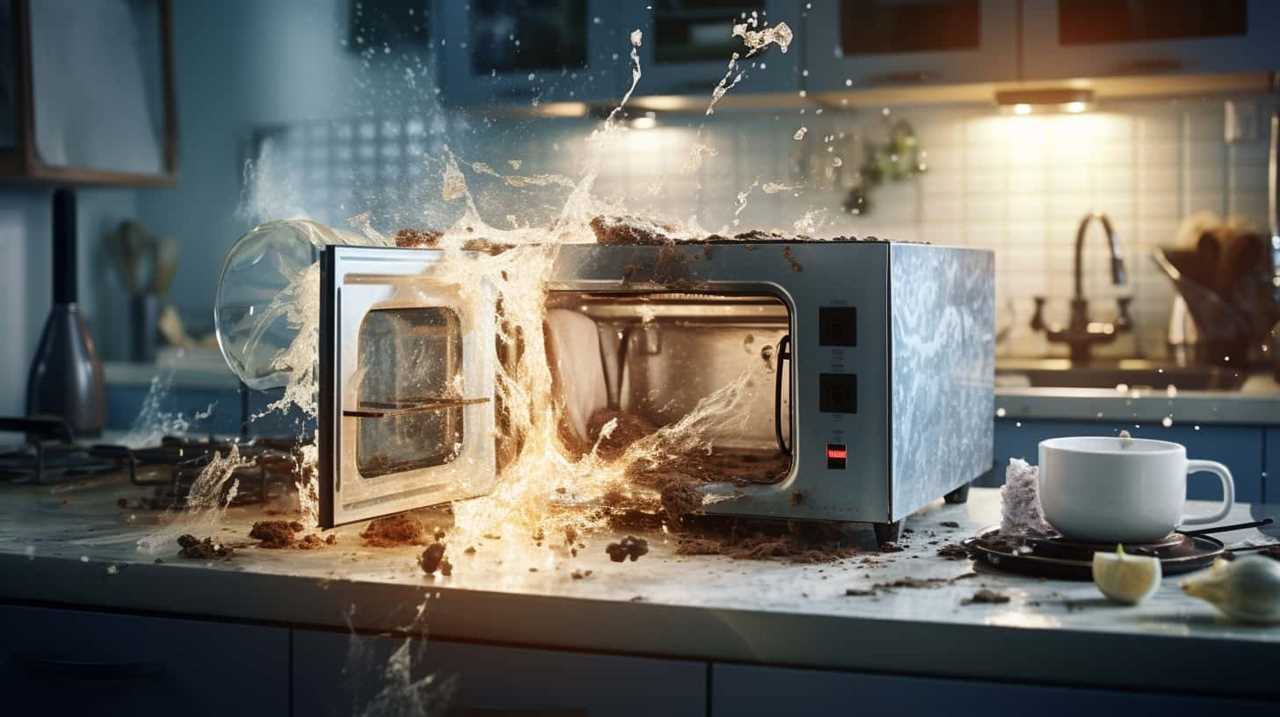
Clearing Debris From Outdoor Condenser Unit
Clearing debris from the outdoor condenser unit involves removing any dirt, leaves, and other obstructions that can hinder its performance. It’s important to regularly inspect and clean the condenser coil to ensure optimal functioning of the HVAC system.
To begin, it’s crucial to remove any vegetation that may have grown around the outdoor condenser unit. Plants, shrubs, or trees that are too close to the unit can restrict airflow and reduce its efficiency. Cut back any overhanging branches or foliage that may block the airflow and impede the unit’s ability to cool the air effectively.
Next, inspect the condenser coil for any debris buildup. Over time, dirt, leaves, and other particles can accumulate on the coil, obstructing the airflow and reducing its heat transfer capabilities. Gently brush away any debris using a soft-bristle brush or a vacuum cleaner with a brush attachment. Be careful not to damage the delicate fins of the coil during the cleaning process.
In addition to removing debris, it’s essential to inspect the coil for any signs of damage or corrosion. If any bent fins are detected, use a fin comb to straighten them out carefully. If there’s significant damage or corrosion, it’s recommended to contact a professional HVAC technician for further assessment and repair.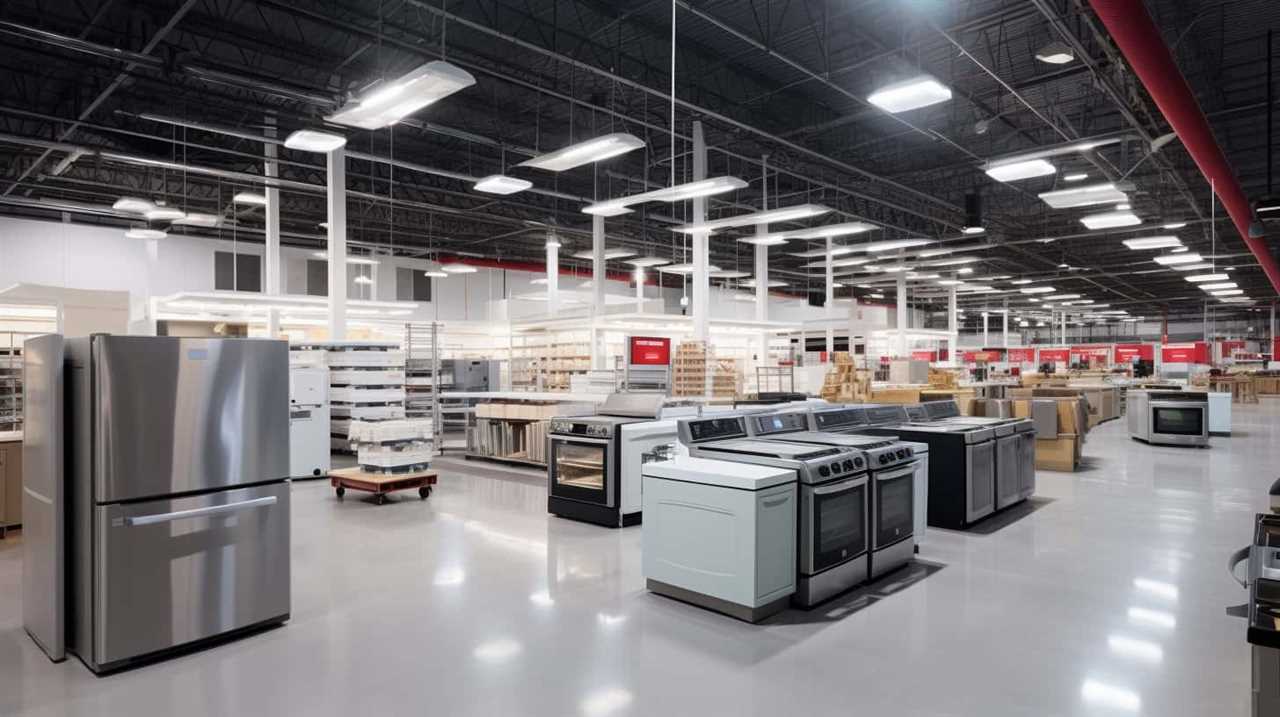
Regularly clearing debris and maintaining the condenser coil will help ensure that the outdoor unit operates efficiently and prolong its lifespan. By following these simple steps, you can optimize the performance of your HVAC system and maintain a comfortable indoor environment.
Frequently Asked Questions
How Often Should I Clean or Replace My Air Filters?
To improve the air quality in our homes, it’s essential to clean or replace air filters regularly. So, how often should we clean or replace them?
It’s recommended to clean or replace air filters every 1 to 3 months, depending on factors like the type of filter, the level of pollutants, and the frequency of HVAC system usage. Regular maintenance ensures that the air flowing through our HVAC system is clean and healthy, promoting a comfortable and safe living environment.
Can I Use Any Type of Air Filter for My HVAC System?
Can we use any type of air filter for our HVAC system?

It’s important to understand that not all air filters are created equal. There are different types of air filters available in the market, each with its own specifications and benefits.
Using the right filter for your HVAC system is crucial in ensuring optimal performance and indoor air quality. It’s recommended to consult with a professional to determine the best filter for your specific system and needs.
Are There Any Specific Thermostat Settings I Should Be Aware of During Different Seasons?
During different seasons, it’s important to adjust thermostat programming to maximize energy efficiency. By setting higher temperatures in the summer and lower temperatures in the winter, you can reduce the workload on your HVAC system and save on energy costs.
Additionally, utilizing programmable thermostats can help automate these adjustments, ensuring optimal comfort and efficiency.
How Can I Determine if the Outdoor Condenser Unit Is Blocked by Debris?
To determine if the outdoor condenser unit is blocked by debris, we can look for certain signs.
One key indicator is reduced airflow coming from the unit. If you notice that the air isn’t flowing as strongly as before, it could be a sign of blockage.
Another sign to watch out for is unusual noises coming from the condenser, which could indicate damage.
Regularly inspecting and cleaning the unit will help prevent any potential issues and ensure optimal performance.
What Are the Potential Consequences of Not Regularly Cleaning the Air Filters or Clearing Debris From the Outdoor Condenser Unit?
Neglecting HVAC maintenance can lead to serious consequences. Regularly cleaning air filters and clearing debris from the outdoor condenser unit is of utmost importance. Failure to do so can result in reduced airflow, decreased efficiency, and higher energy bills.
Additionally, dirty filters can lead to poor indoor air quality and potential health issues. By prioritizing regular HVAC maintenance, we ensure optimal performance, extend the lifespan of our system, and create a healthier and more comfortable living environment.
Conclusion
In conclusion, by regularly cleaning air filters, checking and maintaining thermostat settings, and clearing debris from the outdoor condenser unit, homeowners can ensure optimal performance and efficiency of their HVAC systems.
These essential DIY maintenance tips not only extend the lifespan of the system but also improve indoor air quality and reduce energy consumption.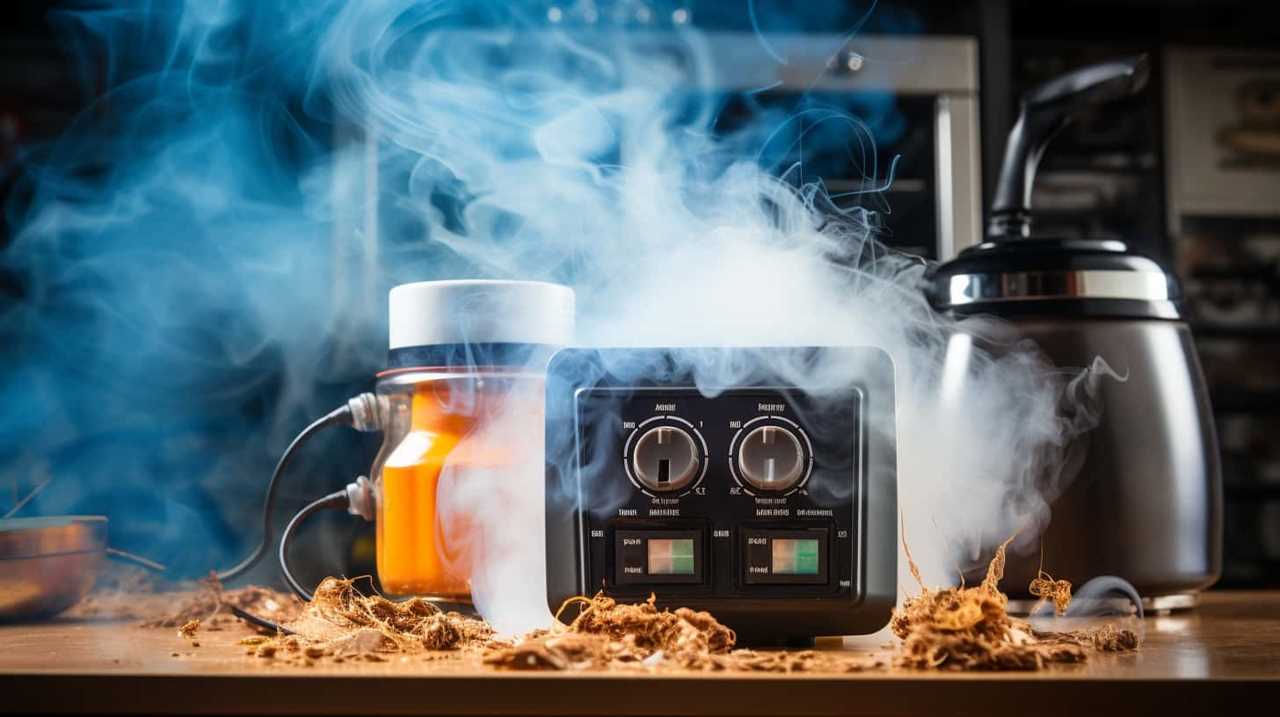
By taking these simple steps, homeowners can enjoy a comfortable and healthy living environment while saving on utility bills.
- About the Author
- Latest Posts
Introducing Charles, the Editor in Chief at ByRetreat, whose passion for interior design and editorial excellence elevates every remote workspace to new heights. With his keen eye for detail, impeccable taste, and expertise in design, Charles brings a wealth of knowledge and creativity to the ByRetreat team.
As the Editor in Chief of a renowned lifestyle blog, Charles has honed his skills in curating captivating content and staying up-to-date with the latest trends in interior design. His deep understanding of aesthetics and the power of storytelling through design enables him to create remote workspaces that are not only visually stunning but also rich in personality and meaning.
-

 Vetted2 days ago
Vetted2 days ago15 Best Folding Beds for Small Spaces – Space-Saving Solutions for Comfort and Convenience
-

 Vetted20 hours ago
Vetted20 hours ago15 Best Waterproof Flooring Options for Your Bathroom – Ultimate Guide & Reviews
-

 Vetted6 days ago
Vetted6 days ago15 Best Grocery Carts to Make Shopping a Breeze
-

 Vetted2 weeks ago
Vetted2 weeks ago15 Best Gravel for Driveway: The Ultimate Guide for a Durable and Stunning Entrance
-

 Vetted4 days ago
Vetted4 days ago15 Best Steam Generators for Showering Bliss: Reviewed & Rated
-

 Beginners Guides3 weeks ago
Beginners Guides3 weeks agoI Inhaled Vinegar Fumes
-

 Vetted2 weeks ago
Vetted2 weeks ago15 Best Hot Tubs of 2024: Luxurious Relaxation at Your Fingertips
-

 Vetted4 weeks ago
Vetted4 weeks ago15 Best Blinds for Bathroom Windows to Enhance Privacy and Style


























